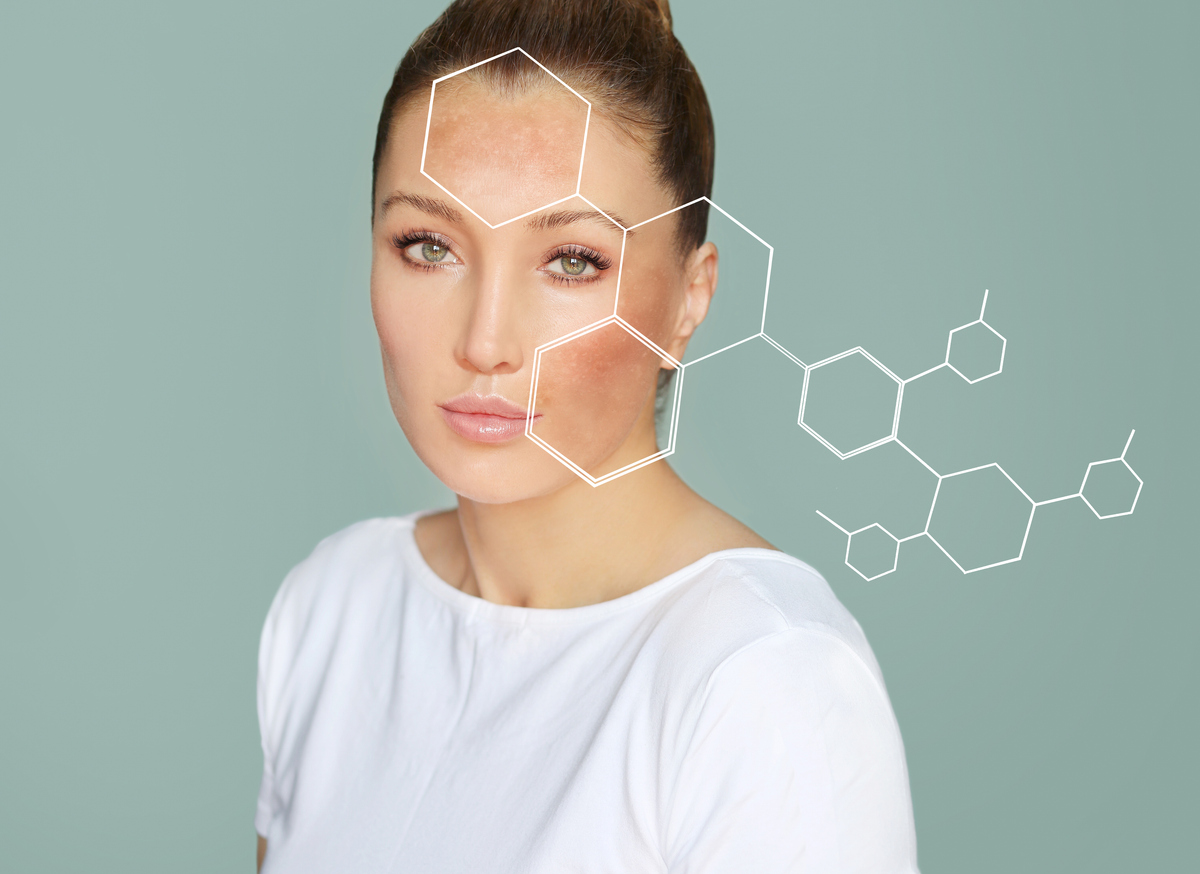The Science of Skincare: Understanding Different Skin Types
Embarking on the journey of understanding skincare is both an art and a science, essential for anyone considering a career in the beauty industry. With varying skin types and concerns, from oily to dry, sensitive to combination, grasping the fundamentals of skin anatomy can empower you to tailor effective skincare routines. Our comprehensive cosmetology training will equip you with the knowledge to identify common skin conditions and apply appropriate treatments, fostering an environment where every client feels understood and cared for. As a trusted advisor and supportive mentor, our program is designed to encourage engagement and growth, paving the way for a fulfilling career in skincare. Whether you’re a prospective student or transitioning from military service to civilian life, we’re here to support you in achieving your educational and professional goals.
Understanding Skin Anatomy
Layers of the Skin
The skin is a complex organ comprising three primary layers: the epidermis, dermis, and subcutaneous tissue. Each layer plays a crucial role in protecting and maintaining the body’s overall health. The epidermis, the outermost layer, acts as a barrier against environmental damage while regulating moisture levels. Beneath it lies the dermis, responsible for the skin’s elasticity and strength, housing blood vessels, nerves, and connective tissues. This layer is vital for supporting the epidermis and facilitating healing processes. The deepest layer, the subcutaneous tissue, consists of fat and connective tissues, providing insulation and energy storage. Understanding these layers is fundamental for anyone engaged in cosmetology training, as it allows for the analysis and treatment of various skin conditions effectively. By mastering the intricacies of skin anatomy, aspiring skincare professionals can tailor personalized skincare routines, ensuring each client’s unique needs are met and fostering healthier skin outcomes.
Role of Skin in Protection
The skin serves as the body’s first line of defense against external threats, playing a pivotal role in maintaining overall health. It acts as a physical barrier, protecting internal organs from harmful pathogens, chemicals, and ultraviolet radiation. The epidermis, specifically, is fortified with keratin and lipids, which prevent water loss and block foreign substances from penetrating. Moreover, the skin’s acidic pH creates an inhospitable environment for many microorganisms, minimizing infection risks. Beyond physical protection, the skin also houses immune cells within the dermis that detect and respond to threats, offering an additional layer of defense. Understanding the protective functions of the skin is vital in cosmetology training, as it forms the basis for creating skincare regimens that support and enhance the skin’s natural defenses. By appreciating these protective mechanisms, skincare professionals can better advise clients on maintaining healthy skin, contributing to long-term well-being and client satisfaction.
Importance of Skin Care
Skin care is essential for maintaining the skin’s health and functionality, impacting both appearance and overall well-being. Proper skincare routines help preserve the integrity of the skin’s protective barrier, preventing dehydration, irritation, and premature aging. Consistent care also aids in balancing oil production, reducing the likelihood of acne and other common skin conditions. For those pursuing cosmetology training, understanding the importance of skincare is crucial for advising clients effectively. It involves not only selecting appropriate products but also educating clients about daily habits that enhance skin health, such as hydration, sun protection, and nutrition. Additionally, personalized skincare tailored to individual skin types and concerns can improve skin texture, tone, and resilience. By emphasizing the importance of skincare, professionals can empower clients to adopt practices that foster long-term skin wellness, enhancing their confidence and satisfaction. This foundational knowledge is key to building trust and establishing a successful career in the beauty industry.
Identifying Skin Types
Characteristics of Oily Skin
Oily skin is characterized by an overproduction of sebum, giving the skin a shiny or greasy appearance, particularly in the T-zone: the forehead, nose, and chin. This skin type often has larger pores, which can lead to increased susceptibility to blackheads and acne. Despite these challenges, oily skin often ages more slowly than other skin types due to the natural moisture provided by sebum. In cosmetology training, recognizing these characteristics is vital for developing targeted skincare solutions that manage oil levels without stripping the skin. Effective routines may include the use of non-comedogenic products, gentle cleansers, and oil-free moisturizers to balance hydration and control shine. By understanding the nuances of oily skin, skincare professionals can tailor advice and treatments, helping clients maintain a healthy complexion. Mastery of these skills is essential for addressing client needs and promoting clear, balanced skin, ultimately contributing to professional success and client satisfaction.
Understanding Dry Skin
Dry skin is marked by a lack of moisture in the outermost layer of the skin, often resulting in a rough, flaky, or sometimes even scaly texture. This condition can lead to tightness and itchiness, particularly after cleansing or exposure to harsh environmental elements like wind and low humidity. Individuals with dry skin may notice fine lines and wrinkles more prominently. In cosmetology training, it is crucial to understand the causes and characteristics of dry skin to recommend appropriate skincare routines. Key strategies include the use of rich, hydrating creams, gentle cleansers that do not strip natural oils, and regular exfoliation to remove dead skin cells. Encouraging clients to use products containing ingredients such as hyaluronic acid and glycerin can be effective in maintaining moisture balance. By understanding and addressing the specific needs of dry skin, skincare professionals can help clients achieve smoother, more supple skin, enhancing their confidence and satisfaction.
Combination and Sensitive Skin
Combination skin is a blend of different skin types, typically featuring both oily areas, such as the T-zone, and dry or normal areas on the cheeks. This mixed skin type requires tailored care to address the varied needs across the face. Meanwhile, sensitive skin is characterized by heightened reactivity to environmental factors and skincare products, often resulting in redness, itching, or irritation. In cosmetology training, understanding these complex skin types is essential for developing effective skincare regimens. For combination skin, professionals should recommend targeted treatments that balance oil production in certain areas while providing hydration where needed. For sensitive skin, the focus should be on gentle, fragrance-free products that soothe and protect the skin barrier. Recognizing the nuances of these skin types allows skincare professionals to offer personalized advice, helping clients manage their unique challenges. This expertise not only enhances client satisfaction but also builds trust and loyalty in the professional-client relationship.
Common Skin Conditions
Acne and Its Causes
Acne is a prevalent skin condition affecting individuals of all ages, characterized by the presence of pimples, blackheads, and cysts, primarily on the face, back, and shoulders. It results from a combination of factors such as excess sebum production, clogged hair follicles, bacteria, and inflammation. Hormonal changes, particularly during puberty, pregnancy, or menstrual cycles, can exacerbate acne by increasing oil production. Additionally, genetic predisposition and stress levels can influence the severity and frequency of breakouts. In cosmetology training, understanding these causes is crucial for advising clients on effective acne management. Skincare routines that include gentle cleansing, non-comedogenic products, and targeted treatments like salicylic acid or benzoyl peroxide can help reduce acne symptoms. Educating clients about lifestyle factors, including diet and stress management, also plays a role in controlling acne. By offering comprehensive guidance, skincare professionals can help clients achieve clearer skin, boosting their confidence and satisfaction.
Recognizing Eczema
Eczema, or atopic dermatitis, is a chronic inflammatory skin condition characterized by red, itchy, and sometimes blistered patches on the skin. It commonly appears on the hands, feet, face, and inside the elbows or behind the knees. Eczema can be triggered by various factors, including environmental irritants, allergens, stress, and genetic predisposition. In cosmetology training, recognizing the symptoms of eczema is essential for providing appropriate care and recommendations. Clients with eczema require gentle skincare routines that focus on hydration and protection of the skin barrier. Products with soothing ingredients like colloidal oatmeal or ceramides can help alleviate symptoms. Advising clients to avoid known irritants and reduce stress can also play a role in managing flare-ups. By understanding eczema and its triggers, skincare professionals can offer effective strategies to help clients manage their condition, improving their comfort and quality of life while enhancing their trust in professional guidance.
Addressing Hyperpigmentation
Hyperpigmentation is a common skin condition where patches of skin become darker than the surrounding area due to excess melanin production. It can result from sun exposure, hormonal changes, inflammation, or injury to the skin. Conditions such as melasma, post-inflammatory hyperpigmentation, and age spots fall under this category. Understanding the causes and types of hyperpigmentation is crucial in cosmetology training to offer effective solutions. Treatments may include topical agents like vitamin C, retinoids, or hydroquinone that lighten dark spots and even out skin tone. Additionally, chemical peels and laser therapies can be considered for more pronounced cases. Protecting the skin from further damage with broad-spectrum sunscreen is essential to prevent worsening. Educating clients about these protective measures is vital for minimizing future pigmentation issues. By addressing hyperpigmentation thoughtfully, skincare professionals can help clients achieve a more even complexion, enhancing their confidence and satisfaction with their skincare regime.
Developing Skincare Routines
Essential Skincare Steps
Creating an effective skincare routine involves a series of essential steps that cater to the skin’s unique needs. The first step is cleansing, which removes dirt, oil, and impurities, setting the stage for other products to work effectively. Choosing a gentle cleanser suitable for the skin type is crucial. Next, toning helps balance the skin’s pH and remove any lingering residues, often preparing the skin for better absorption of treatments. Following toning, serums or treatments targeting specific concerns, such as acne or hyperpigmentation, should be applied. Moisturizing is a critical step that hydrates and protects the skin barrier, preventing moisture loss and maintaining smoothness. The final and indispensable step is sun protection. Applying a broad-spectrum sunscreen daily shields the skin from harmful UV rays, preventing premature aging and pigmentation. By adhering to these steps, individuals can maintain healthy skin and address specific concerns, ensuring a balanced and effective skincare routine.
Tailoring Routines for Different Types
Tailoring skincare routines to fit individual skin types is essential for achieving optimal results. For oily skin, focus on products that control excess sebum without stripping the skin, such as gel-based cleansers and lightweight, oil-free moisturizers. Incorporating exfoliants like salicylic acid can help manage clogged pores. Dry skin benefits from rich, creamy cleansers and moisturizers that include emollients like shea butter or hyaluronic acid to lock in moisture. For combination skin, a balanced approach is necessary, using products that address both oily and dry areas effectively. Sensitive skin requires gentle, fragrance-free products that soothe and protect, such as those with calming ingredients like chamomile or aloe vera. In cosmetology training, understanding these distinctions is crucial for crafting personalized skincare regimens that address specific needs and concerns. By customizing routines, skincare professionals can help clients achieve healthier, more balanced skin, enhancing their satisfaction and trust in professional guidance.
Importance of Consistency
Consistency is a fundamental aspect of any skincare routine that significantly impacts its effectiveness. Regular application of skincare products ensures that the skin receives continuous support and protection, allowing treatments to work over time. This steady approach is crucial for addressing long-term concerns such as acne, pigmentation, or aging. Skincare products often require consistent use to penetrate the skin layers and deliver their active ingredients effectively. For individuals undergoing cosmetology training, emphasizing the importance of consistency to clients is essential for achieving desired results. It helps set realistic expectations and avoids frustrations that may arise from intermittent or sporadic application. Furthermore, maintaining a consistent routine can help in monitoring skin’s response to products, making it easier to adjust as needed. By committing to a regular skincare regimen, clients are more likely to see improvements in their skin health and appearance, fostering satisfaction and confidence in their skincare journey.
The Role of Cosmetology Training
Benefits of Professional Guidance
Professional guidance in skincare offers numerous benefits, particularly through structured cosmetology training. This training equips aspiring skincare specialists with comprehensive knowledge about skin anatomy, product ingredients, and treatment techniques. Professional guidance helps individuals discern between various skin types and conditions, allowing them to tailor advice and solutions effectively. It also provides insights into the latest industry trends and research, ensuring practitioners stay informed and innovative in their approach. For clients, seeking professional guidance means receiving personalized recommendations that improve skin health and address specific concerns effectively. Trained professionals can identify issues that may not be apparent to the untrained eye and suggest appropriate interventions. Furthermore, professional guidance fosters a trusting relationship between clients and skincare specialists, enhancing client satisfaction and loyalty. By leveraging the benefits of expert advice, both professionals and clients can achieve better skincare outcomes, laying the foundation for a successful and fulfilling career in the beauty industry.
Career Opportunities in Skincare
Cosmetology training opens a variety of career opportunities in the skincare industry, catering to diverse interests and talents. Graduates can pursue roles as estheticians, providing facials, chemical peels, and other treatments to enhance clients’ skin health and appearance. Opportunities also exist in dermatology clinics, where professionals assist with advanced skin therapies and consult on medical-grade products. For those interested in the retail sector, careers in beauty product sales or as brand representatives offer the chance to educate consumers about skincare solutions. Additionally, entrepreneurial paths such as starting a skincare line or owning a spa allow individuals to innovate and create unique client experiences. The industry also offers roles in education and training, where experienced professionals can mentor the next generation of skincare specialists. With the increasing demand for skincare services, cosmetology training equips individuals with the skills and knowledge to excel in a dynamic and rewarding field, ensuring a bright professional future.
Advancing Skincare Knowledge
Advancing skincare knowledge is integral to staying relevant and effective in the ever-evolving beauty industry. Through comprehensive cosmetology training, professionals gain a deep understanding of skin biology, enabling them to make informed decisions about treatments and products. Continuous education is essential, as it allows skincare specialists to stay updated on the latest research, techniques, and technological advancements. This ongoing learning process helps professionals refine their skills and expand their expertise, ensuring they can offer cutting-edge solutions to clients. Additionally, advancing knowledge fosters innovation, encouraging practitioners to explore new methodologies and develop unique treatments tailored to individual needs. By participating in workshops, seminars, and industry conferences, skincare professionals can network with peers, exchange ideas, and gain insights into emerging trends. Ultimately, advancing skincare knowledge not only enhances a professional’s competency but also instills confidence in clients, contributing to successful and satisfying skincare experiences. This commitment to education and growth is crucial for a thriving career in skincare.























